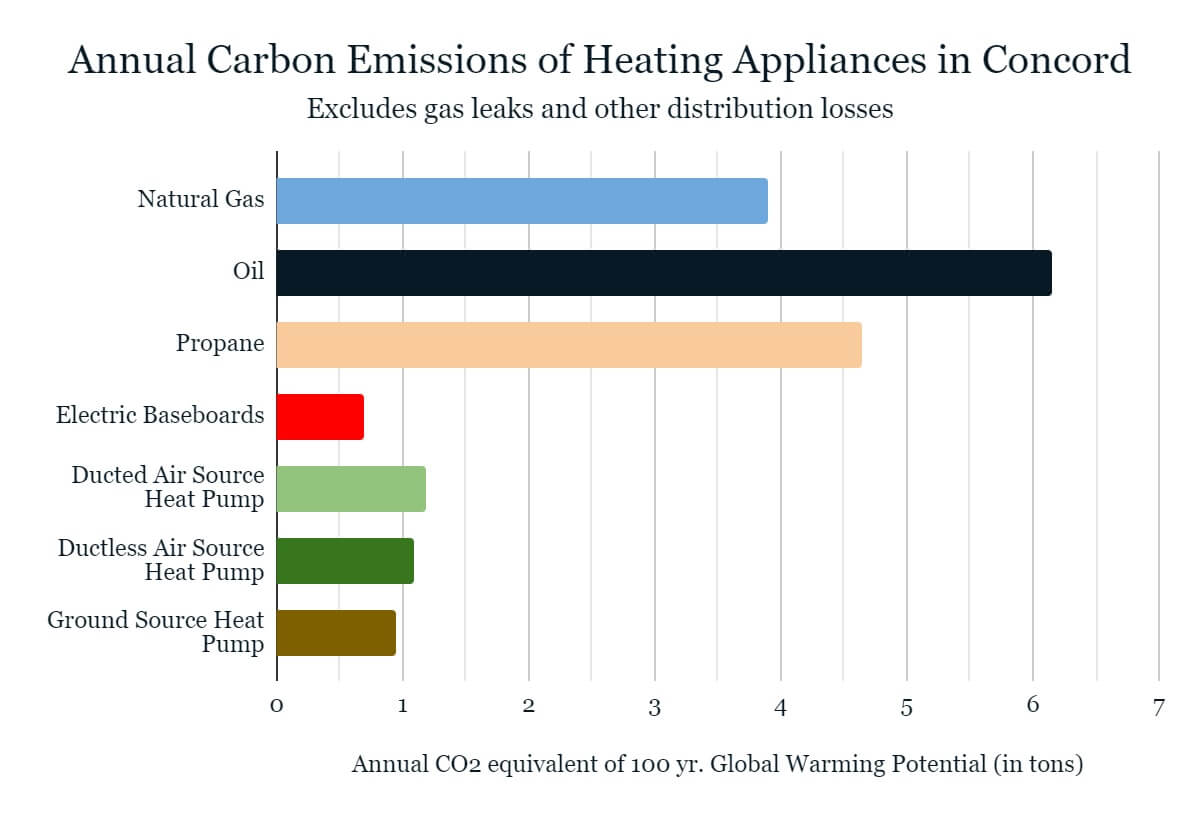In New England, heating your home is not optional. Central air conditioning isn’t always a requirement, but as climate change brings warmer temperatures and more weather anomalies, those window units may not cut it.
Burning oil and gas contributes to climate change, according to the Environmental Protection Agency. Almost 75% of Massachusetts households used fossil fuels to heat in 2021, per the U.S. Census Bureau.
What is a comfort-seeking, environmentally aware and dollar-wise homeowner to do? The Concord Municipal Light Plant wants to make it easy to consider an electric heat pump system.
“We’re introducing a new technology. For the first time in human history, we don’t have to burn things to keep warm,” said Kim Slack, a coach for Concord Clean Comfort, a free service offered by CMLP for their customers.
Manu Pathak switched to a heat pump last year for his family’s Concord home, thanks, in part, to the coaching.
“We were essentially flying blind,” Pathak said of his family’s decision to convert from oil heating and window air conditioning. “I would never have figured it out on my own.”
A coach cannot recommend a contractor, so Slack guided Pathak to get several written estimates and helped evaluate the results. Pathak would have opted for the least expensive option, but learned from Slack that the energy efficiency was not rated at the level needed for New England winters.
Through CMLP, Pathak was able to have his system pre-approved by Abode Energy before it was installed, increasing the likelihood that it would be eligible for rebates. It was.
Some homes may do well with a heat pump system for the entire property, while others may opt to use other systems as well or not switch to heat pumps at all, said Ethan Heberman, another coach: “The coaching program is very good to get people over the hump of skepticism.”
The heating and cooling system is just one part of the puzzle. “The weatherization piece is extremely important,” he said.
CMLP offers weatherization rebates, funded through the ratepayers, and heating system rebates for non-gas customers, said Jan Aceti, Energy Conservation Coordinator at CMLP.
Mass Save offers heating system rebates for gas customers, Heberman said.
The Pathak family can keep the house at a constant temperature, even during this winter’s cold snap. They no longer haul window units upstairs to use for four or five weeks each summer. The space heaters are gone from the bedrooms.
“It seemed to do pretty well. We didn’t have any problems,” Pathak said.
Cost savings were difficult for him to measure. According to the contractors, heating costs should go down between $200 and $300 per year.
The electric supply had to be upgraded, “which was a task in itself,” Pathak said. They added an electric vehicle and charger, so their electric usage has gone up.
Like others polled by CMLP who had coaches, Pathak has been talking up the program to friends.
The word-of-mouth enthusiasm works. Since the coaches were hired in 2021, they’ve fielded over 730 requests for guidance — more than one every day and half, Aceti said.
Between supporting carbon-free generating facilities and purchasing carbon credits, the power supplied by CMLP in 2023 is forecasted to be carbon-free, Aceti said.
Free or low-cost loans would have sweetened the deal, Pathak said: Even with rebates, coming up with $30,000 is a challenge, especially when interest rates are high.
CMLP is working on that too, Aceti said.





